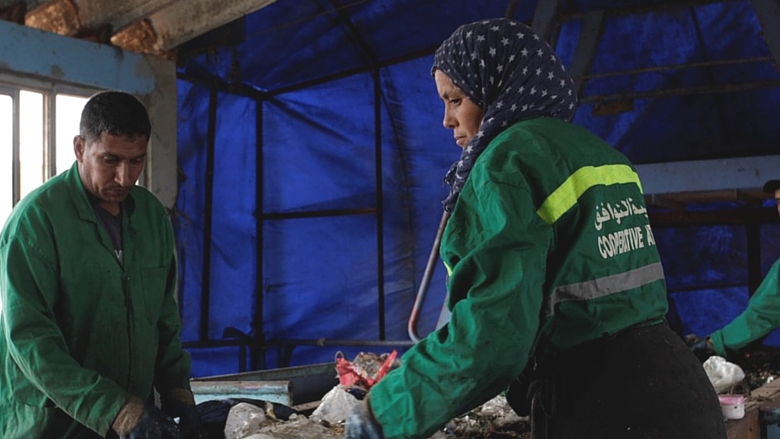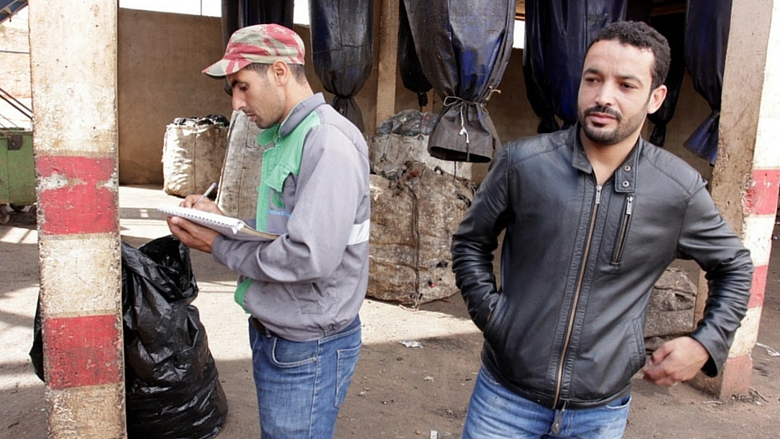Scavengers have always known there is value to be found in trash.
Twelve years ago, when Milouda Haimar’s elderly husband became too ill to work, she turned to the trash mountain near her home. At night, when her six children were in bed, she would strap a flashlight over her headscarf and join other scavengers picking through the refuse of Rabat, the capital city of Morocco. The most valuable finds were copper, followed by aluminum, hard plastic containers and cardboard. Milouda says she could make about 120 to 250 Dirhams* a night, barely enough to provide for her family.
But the trash heap was unsafe. Men, women, elderly people and children competed for the best finds and went through the trash without gloves, in the rain and blinding sunshine, day and night. Moreover, the trash was located in an old quarry that operated without regulations or oversight from 1980 to 2007.
“It used to smell terrible, with streams of toxic leach flowing into the Bouregreg (the river that runs through Rabat). There were walls of black or white foam blocking the road at times” remembers Gerard Prenant, Director of the private operator that manages the Oum Azza waste management site.
Today, the Bouregreg estuary which discharges to the Atlantic Ocean, is clean enough to attract fishermen and tourists. And Milouda and her fellow trash-pickers have been relocated to a modern facility, the Oum Azza waste management site, where they operate a one-of-a-kind recycling cooperative. This is partly thanks to Morocco’s Programme National des Déchets Ménagers, through which the Government intends to increase the rate of material collected and recycled from 5 percent today to 20 percent by 2022 while improving the conditions of waste pickers. This Program has been supported by four consecutive World Bank Municipal Solid Waste Development Policy Loans (DPL).
The private operator that runs the Oum Azza site says it is the largest modern sorting and landfilling facility in the Maghreb area, taking in about 850,000 tons of refuse per year. It sponsored the creation of a cooperative and built a sorting facility to help people like Milouda who used to work at the makeshift site, continue earning money but in safer and more organized conditions. About 150 people belong to the cooperative, of which 22 are women.
The members are organized in teams that pick out different types of recyclables on a conveyor belt. “Everyone is paid the same monthly salary of 2,620** Dirhams a month,” explains Yassine Mazzout, President of the Cooperative At-Tawaffouk (which means Success in Arabic), and any excess profit is shared once a year according to the number of hours each one has worked. “Although I make a bit less money than before, there are other advantages,” says Milouda. Cooperative members receive health insurance, access to a bank account and a low mortgage.
The trash pickers also contribute to the business model. The on-site recycling plays an important role: by extracting about 2,200 tons of solid trash per year for resale and turning about 100,000 tons of green garden waste into compost, the cooperative reduces the volume of trash that needs to be buried and prolongs the site’s life expectancy. Yassine would like to recycle more waste and help trash pickers in other cities, like Agadir, get organized.


